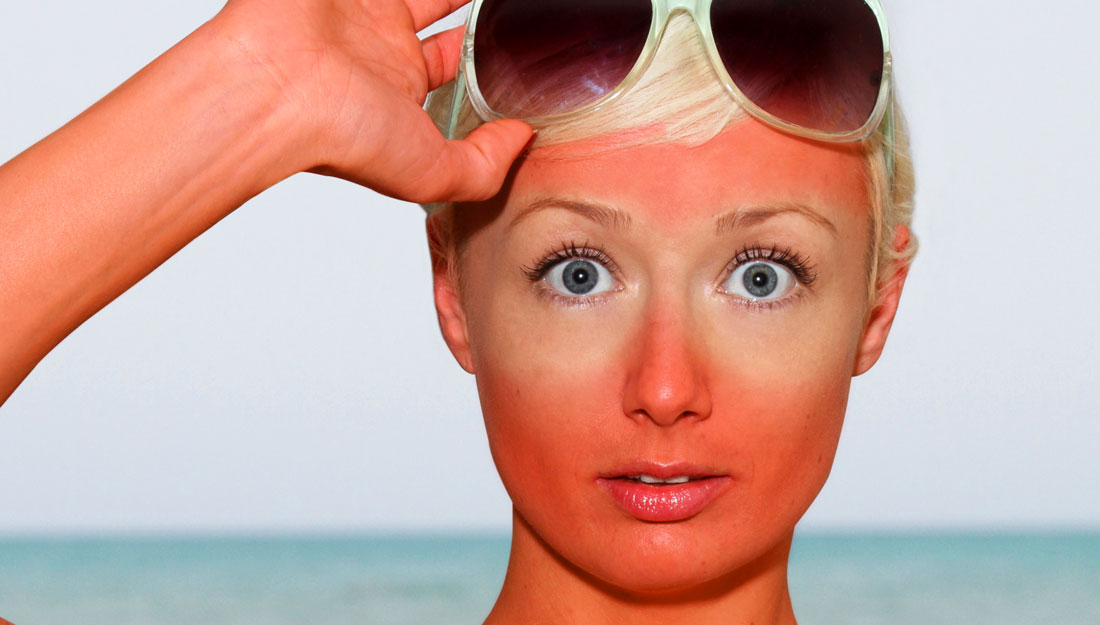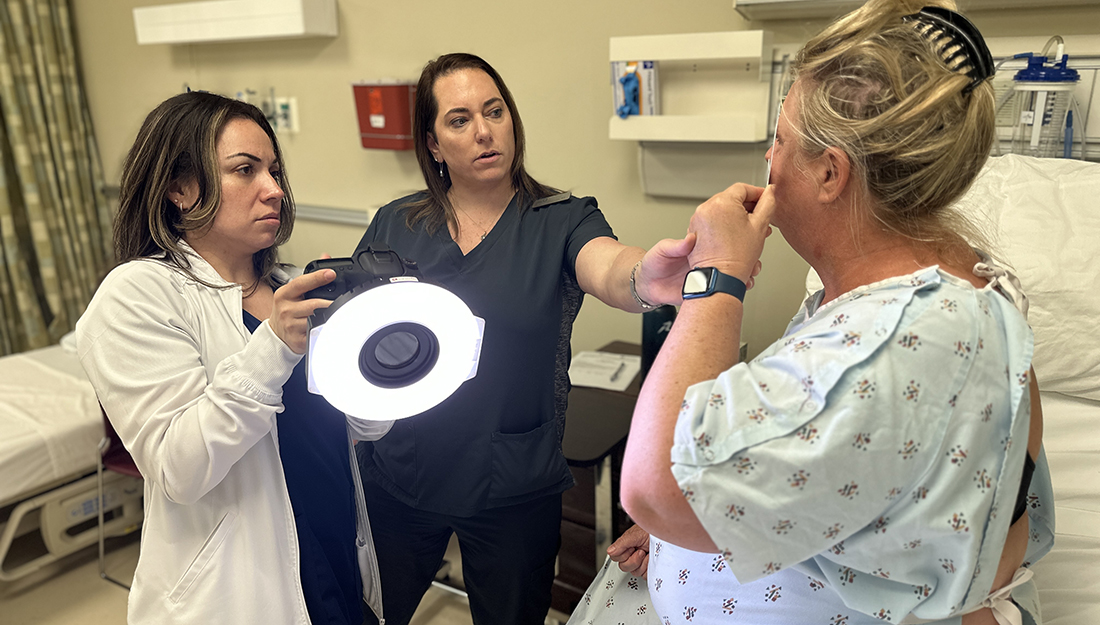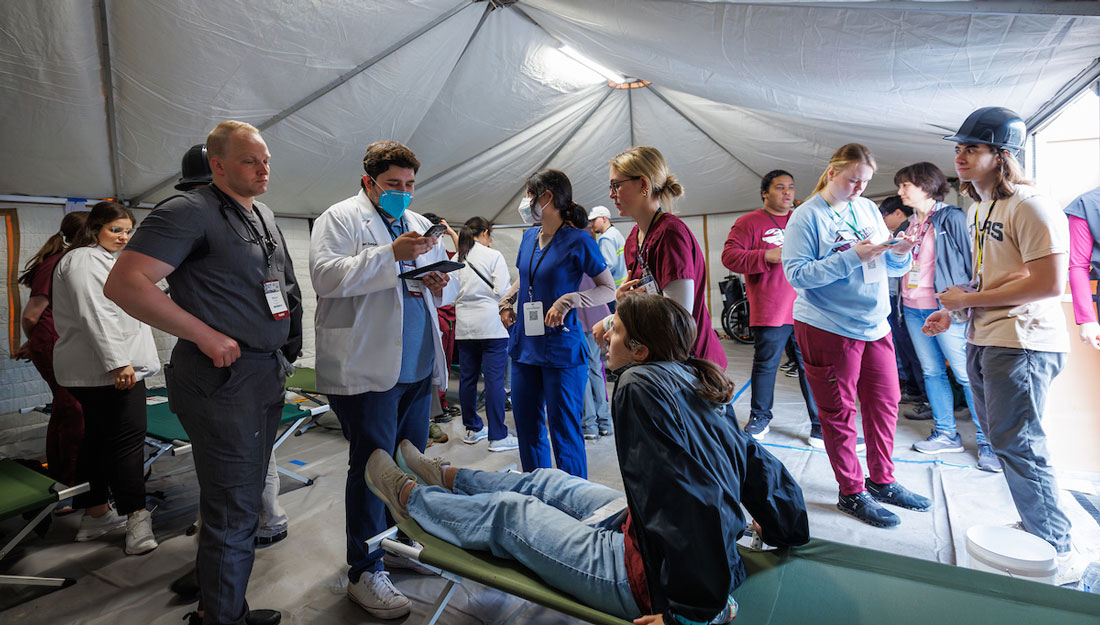- Lauren Thompson
- Nursing, Show on VR homepage, Trending, You Asked
You Asked: Can the sun make you feel sick?
Sometimes, too much sun can give you a ‘hangover’

Summer is preparing to make its debut in a few weeks, and along with it, most of us will flock to the outdoors to soak up sunshine and Vitamin D. However, even if we’re using sunscreen and staying hydrated, our fun in the sun can sometimes come at a price; leaving us sapped of all energy the next day—almost like a ‘sun hangover.’ A Texas A&M Health Science Center family nurse practitioner explains why this may happen and how to prevent it.
The skin is the body’s largest organ; a fact we are often unaware of or ignore. Prolonged sun exposure can easily irritate our sensitive skin which creates an inflammatory response that resonates throughout the whole body.
“If you’re sunburned and have inflammation, this happens as a result of your body trying to heal and repair,” said Cindy Weston, DNP, RN, FNP-BC, assistant professor at the Texas A&M College of Nursing. “Your skin is an organ, and when it’s damaged this activates the entire immune system to mobilize and repair it.”
The immune system may respond even if you’re scrupulous about sunscreen use and staying hydrated during outdoor outings. If you’ve ever felt lethargic, achy, or experienced general ‘under-the-weather’ type feelings after sun exposure, this immune response may be the culprit. “We encounter these symptoms because the body is, in a sense, battling an acute infection,” Weston said. “This immune response may present after spending extended time in the sun or when you’re sunburned.”
Weston noted the majority of people aren’t hydrated enough for sweltering days and events with lengthy sun exposure. “You might be well-hydrated before the experience, but you need to say hydrated during the event, too,” she said. “Often times, our beverage of choice will only make things worse—if you’re consuming alcohol or soda the body will dehydrate faster and worsen symptoms. That’s why water is crucial to replenish and hydrate.”
Modern innovations have aided in encouraging the public to consume more water, specifically products like CamelBak backpacks and water bottles. [pullquote align=”full” cite=”” link=”” color=”” class=”” size=””]“Carrying your CamelBak or water jug has become a staple in our culture,” Weston continued. “Water should always be the best accessory you carry during hot weather.”[/pullquote]
Important to know, if you’re thirsty you’re already extremely dehydrated. Weston said depending on the temperature and heat index—and how long you plan to be outside—you should be drinking anywhere from a half to a full liter of water an hour to keep the body hydrated.
Using sunscreen before and during all outdoor activates can also help prevent many of these feelings of ‘sun sickness.’ Weston stressed always using a minimum of 30 SPF for appropriate UVA/UVB protection, and she personally uses 50 SPF while outside in any sunny weather. It’s best to stay in the shade between 10 a.m. and 4 p.m., and remember UV protection for your eyes with a good pair of sunglasses.
“Protecting the skin is key, through both diligent sunscreen use and wearing appropriate clothing for prolonged sun exposure,” she said. “Light, long sleeves are best and companies make so many breathable fabrics now. Sometimes, these fabrics are just as comfortable as wearing a tank top.”
Certain medications may increase your skin sensitivity, upping the chances of feeling drained after a day in the sun. Some antibiotics like Bactrim or Tetracyclines can make the skin predisposed to sunburn, and, in rare cases, anti-inflammatory medications like ibuprofen which are used to treat sunburn can actually cause your skin to be more sensitive to the sun.
For mild ‘sun hangover’ symptoms, Weston said you should always catch up on your fluids and take anti-inflammatory medications to alleviate any ‘tired and run-down’ feelings. “It’s imperative that you re-hydrate yourself,” she said. “To soothe your skin, you should take cool showers or baths and use pure Aloe Vera gel on any sensitive spots.”
So, what happens if you’ve taken all these precautions and your skin still turns red and angry? Rehydration is the most important treatment for a sunburn. “Not many people realize how much additional fluid you must take in while sunburned. When the skin is exposed to or damaged by the sun it loses water quickly,” Weston said. “The number one treatment for a burn patient is hydration, and, sunburns that blister are actually second-degree burns. When this happens, you need to be evaluated by a medical professional.”
Media contact: media@tamu.edu


